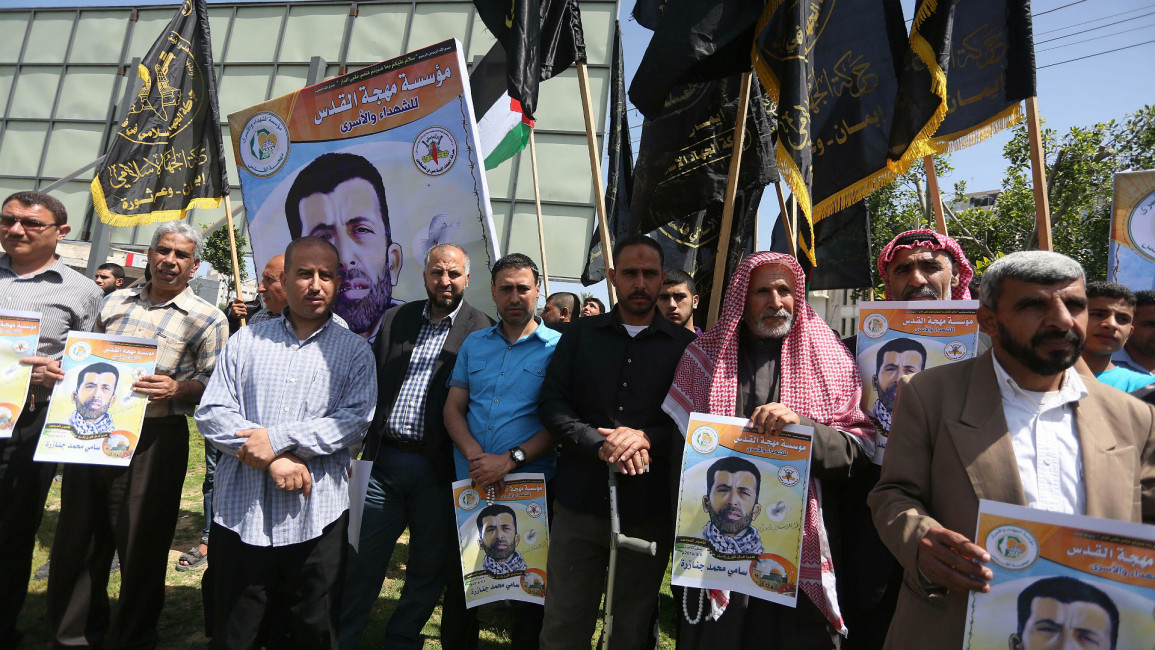Palestinian hunger striker moved to hospital as health worsens
Israeli authorities have transferred Palestinian prisoner Sami Janazreh from solitary confinement to the hospital as his health severely deteriorates.
Janazreh, 43, has been on hunger strike for 59 days in protest of his administrative detention. He was initially detained on November 15 2015.
His health has continued to deteriorate since late March, when he began suffering kidney, chest, and teeth pain, eventually having difficulty walking and experiencing permanent dizziness.
Last week, he was transferred to the hospital for treatment after sustaining a head injury due to seizures, only to be transferred back to solitary confinement upon his release from the hospital.
Palestinian prisoners commonly resort to hunger strikes as a way of protesting their arbitrary arrest and detention by Israeli authorities.
Israeli prison authorities usually move hunger-striking prisoners to solitary confinement as a way of pressuring them into ending their strike.
 |
Palestinian prisoners commonly resort to hunger strikes as a way of protesting their arbitrary arrest and detention by Israeli authorities |  |
Palestinian journalist Mohammad al-Qiq nearly died during a 94-day hunger strike, which he ended recently after a deal was reached to secure his release.
More than 700 Palestinians are currently held under administrative detention, out of more than 7,000 Palestinian detainees in Israeli prisons, according to a report by the Palestinian Prisoners' Club.
| Read More: Remembrance and resistance among Palestinian prisoners |
Palestinian administrative detainees are held without charge or trial, often on the basis of secret evidence, for periods of up to six months, which are extendable indefinitely.
The United Nations has called on Israel to end the practice and to release or promptly charge all administrative detainees.
The practice has increased dramatically since the beginning of October, with 240 new administrative detention orders being issued in that time.



